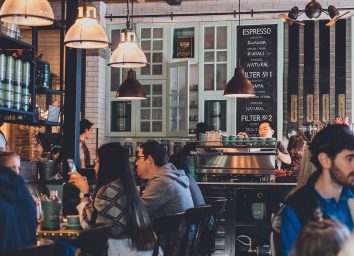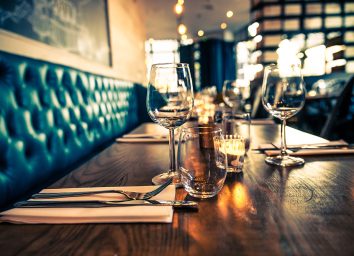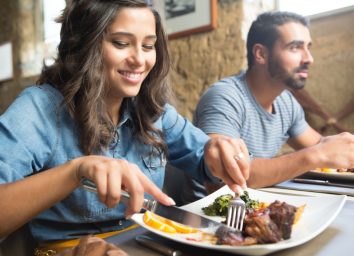7 Ways You're Attracting Germs When You Go Out to Eat
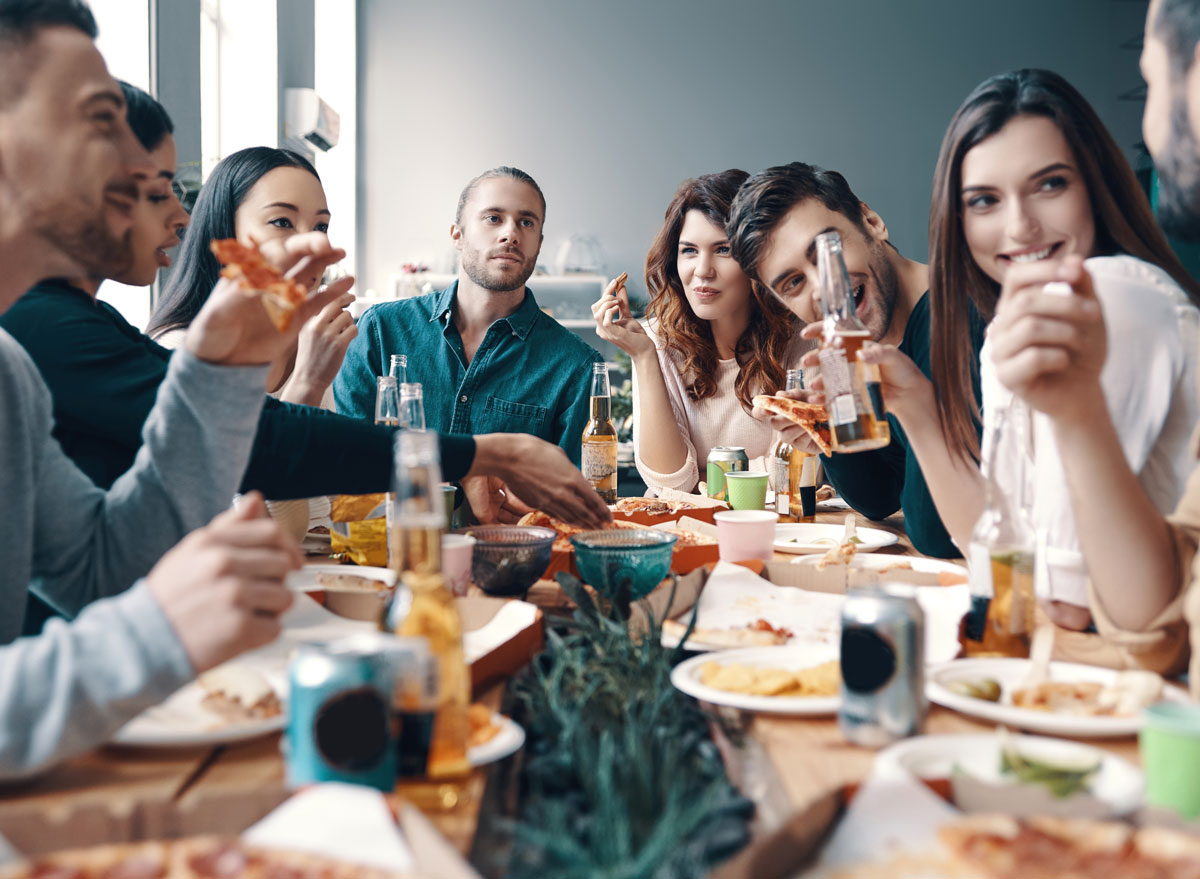
Across the nation, restaurants are starting to open as the country slowly emerges from the coronavirus lockdown. But, as you consider going to your favorite dining establishment (that is hopefully adhering to strict CDC guidelines), you should be aware of the ways in which you can still attract potentially dangerous germs and contagions.
As public health experts reveal who is most susceptible and what specific conditions are most likely to spread the virus, critical data has emerged that reveals that being in an indoor, highly-trafficked, and relatively crowded environment that is not well ventilated can greatly increase the likelihood of contracting the virus.
Restaurants are in dire need of business, so please support your favorite local spots during this critical time. But, also follow these tips to keep yourself and others healthy and safe. What follows are the many unsuspecting ways you may be attracting germs at your favorite restaurant and how to avoid each.
You sit inside instead of outside.
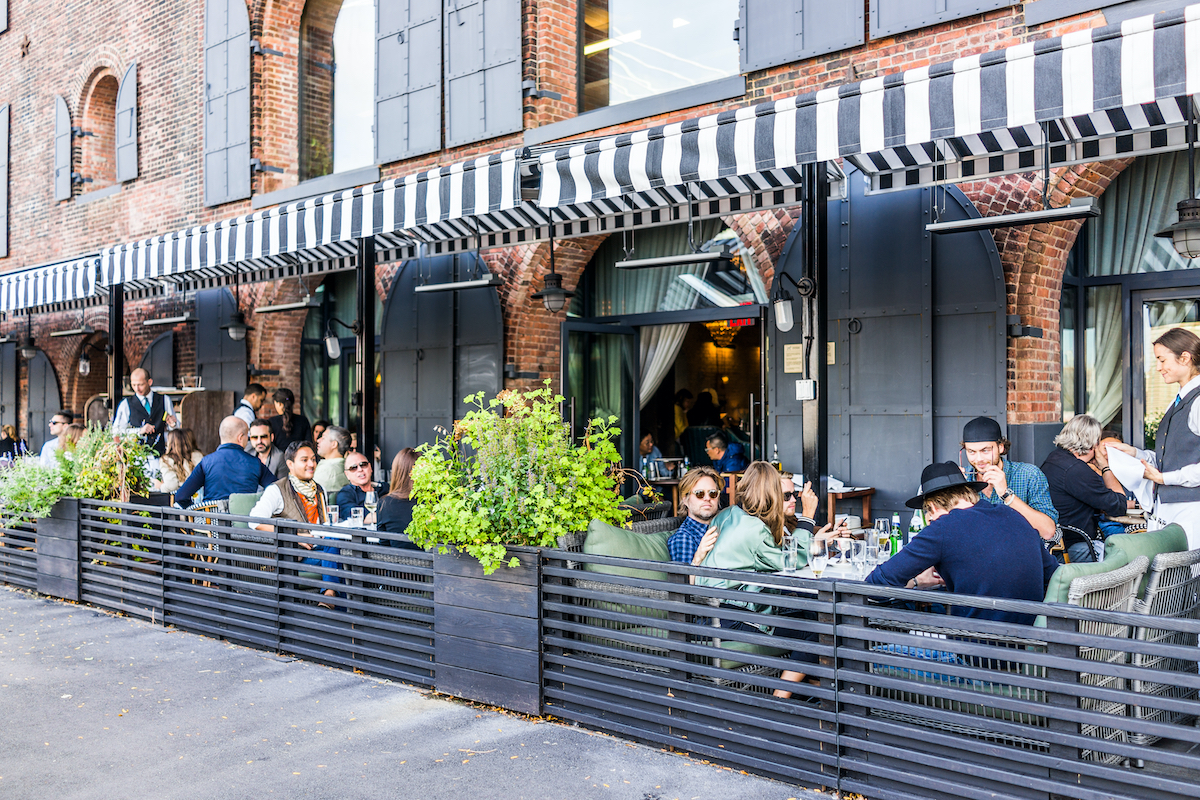
Being outside is much better for you than being indoors! This comes directly from recent research about which conditions are most conducive to the transmission of COVID-19. A highly-trafficked and poorly ventilated indoor location is a riskier place for contracting the coronavirus. So, if your favorite eatery offers an option to dine al fresco? Take it! Related: Shocking New Video Shows Just How Fast Germs Spread in a Restaurant.
You use the restroom.
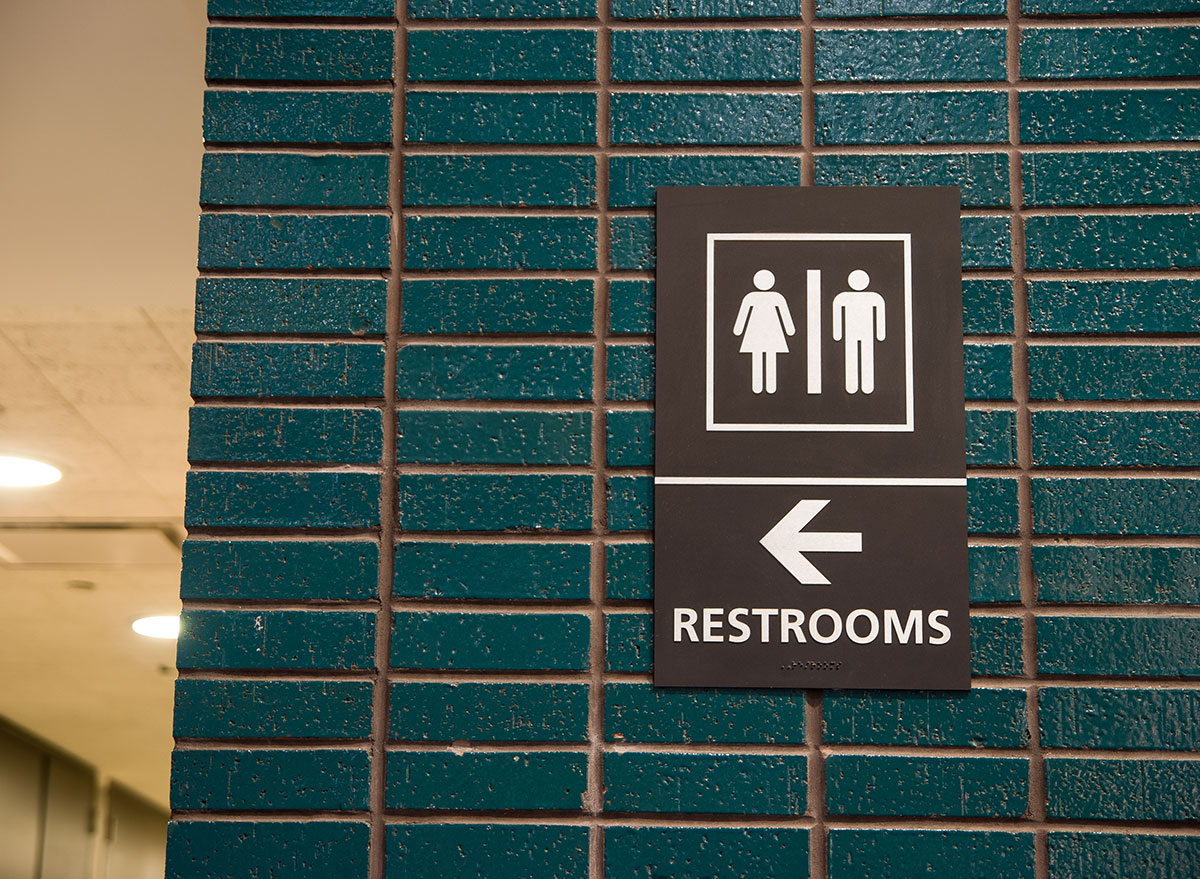
Public restrooms are best avoided during the pandemic, seeing as COVID-19 can easily be spread via the aerosolization of fecal matter when you flush the toilet. But, that's not all: You can also be exposed by people drying their hands at hand driers (bacteria, viruses, etc. from their hands can be transmitted through the air). If you can, hold it until you get home. (Related: The #1 Worst Mistake to Avoid at Dine-In Restaurants.)
You don't wear a mask!
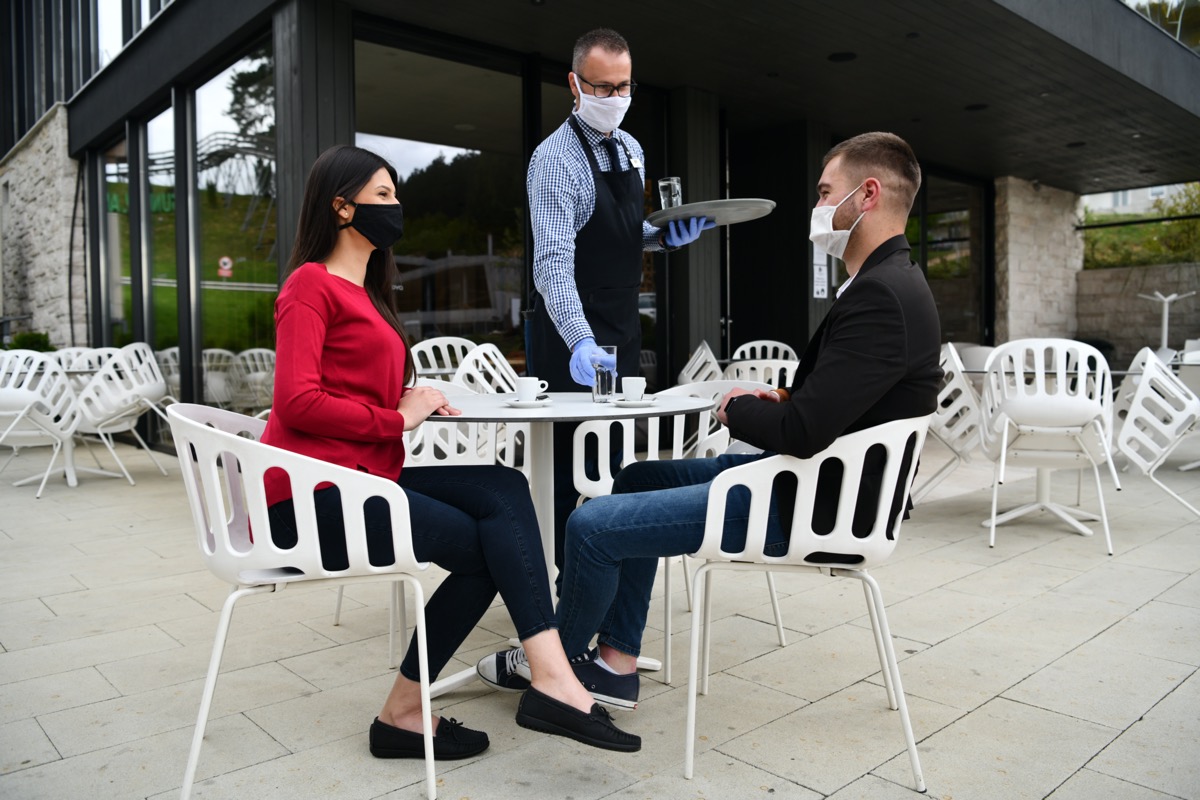
Wearing one as you walk in and out of an indoor restaurant is respectful of the other patrons around you and limits the aerosol droplets that you could be breathing in and out. So, wear a mask. It's not about you, it's about the fellow patrons and restaurant workers who fear for their health. And, it's still the best way to greatly limit the inhalation of germs expelled by those around you.
You pay with cash.
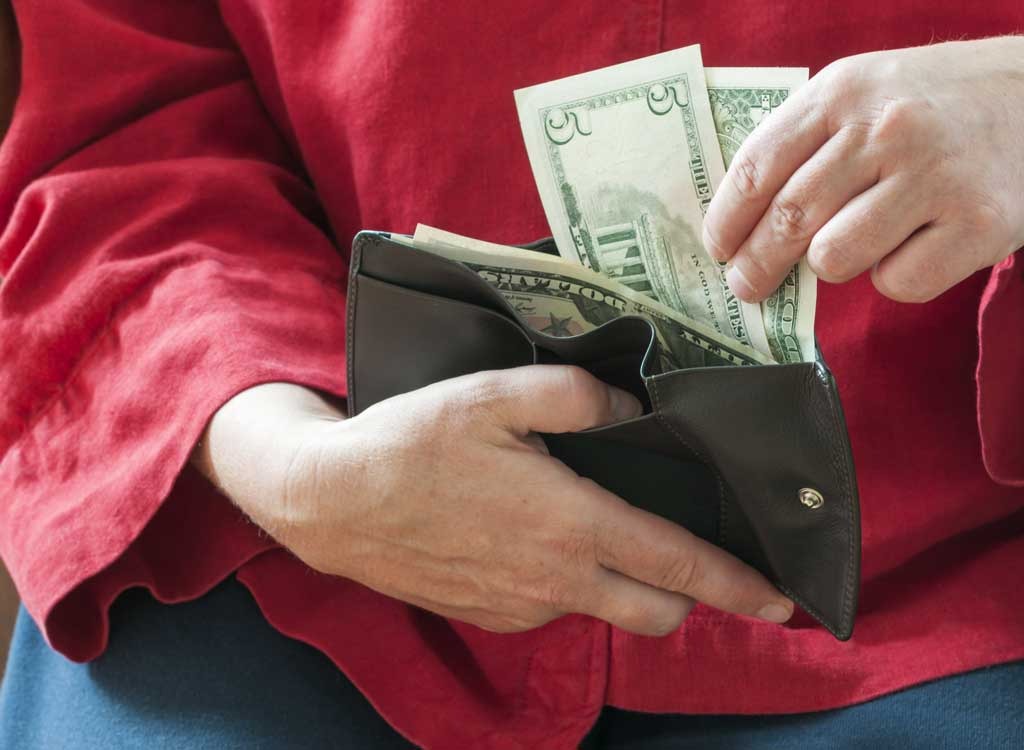
You are far less likely to contract COVID-19 from materials like paper, but since cash spreads throughout the public and is touched by thousands of individuals, why risk it? Use your credit card if you can, which makes things cleaner, easier, and reduces the amount of person-to-person interactions. In fact, many restaurants are now using contactless payment methods, such as Venmo, for this exact reason.
You got food from the buffet.
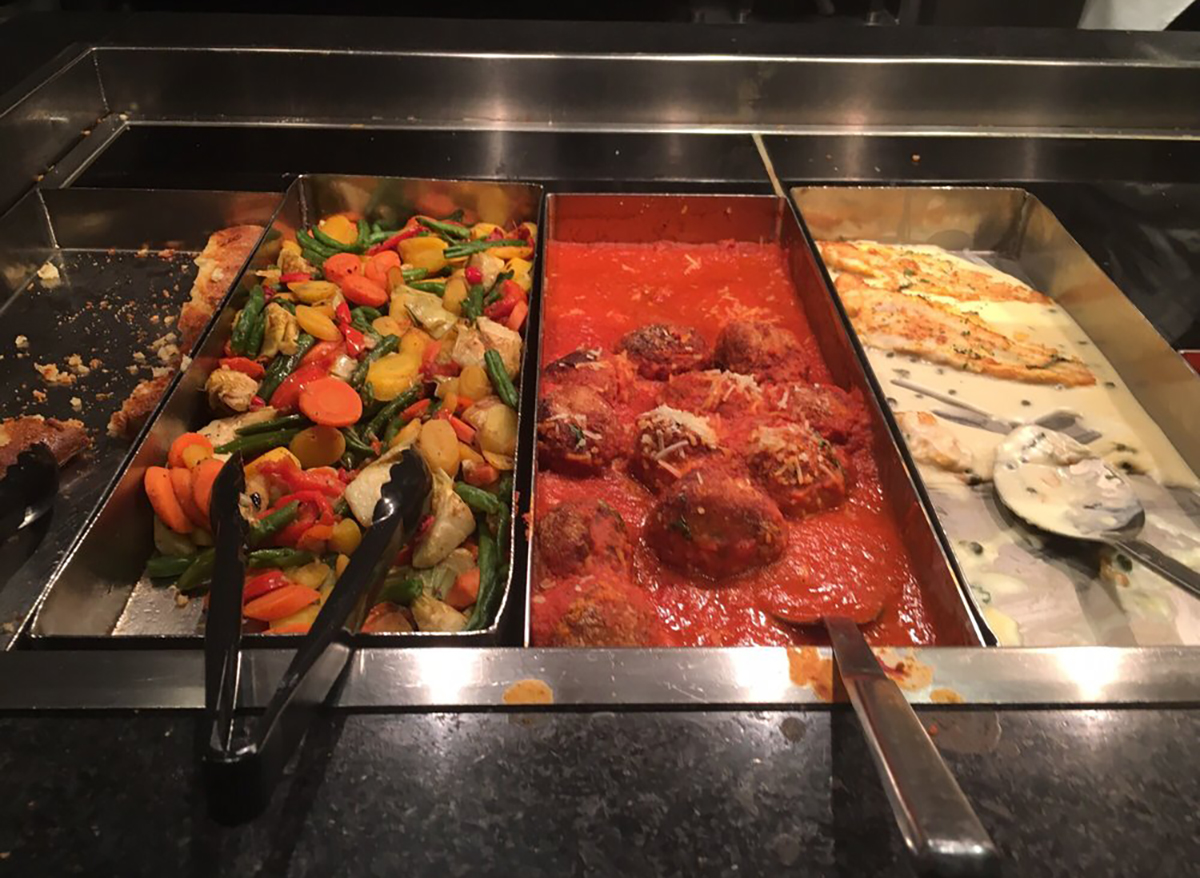
If this is even an option at a reopened restaurant (which it shouldn't be), don't go there. Sneeze guards are great in theory, but the spread of aerosolized droplets can get to open dishes very easily. The odds of getting sick from common foodservice like this aren't remarkably high, but then again, why risk it? If you need more proof, watch this video of how germs spread at a buffet.
You're sitting too close to others.

If you must eat indoors, don't forget to social distance! Try to sit at least six feet from others, if not farther. It bears repeating that one way to get sick from this virus is via inhalation from infected people's breathe. If nearby people are speaking or laughing loudly, or even sneezing and coughing, then you could be at a greater potential risk of breathing in COVID-19.
You're forgetting to wash your hands!
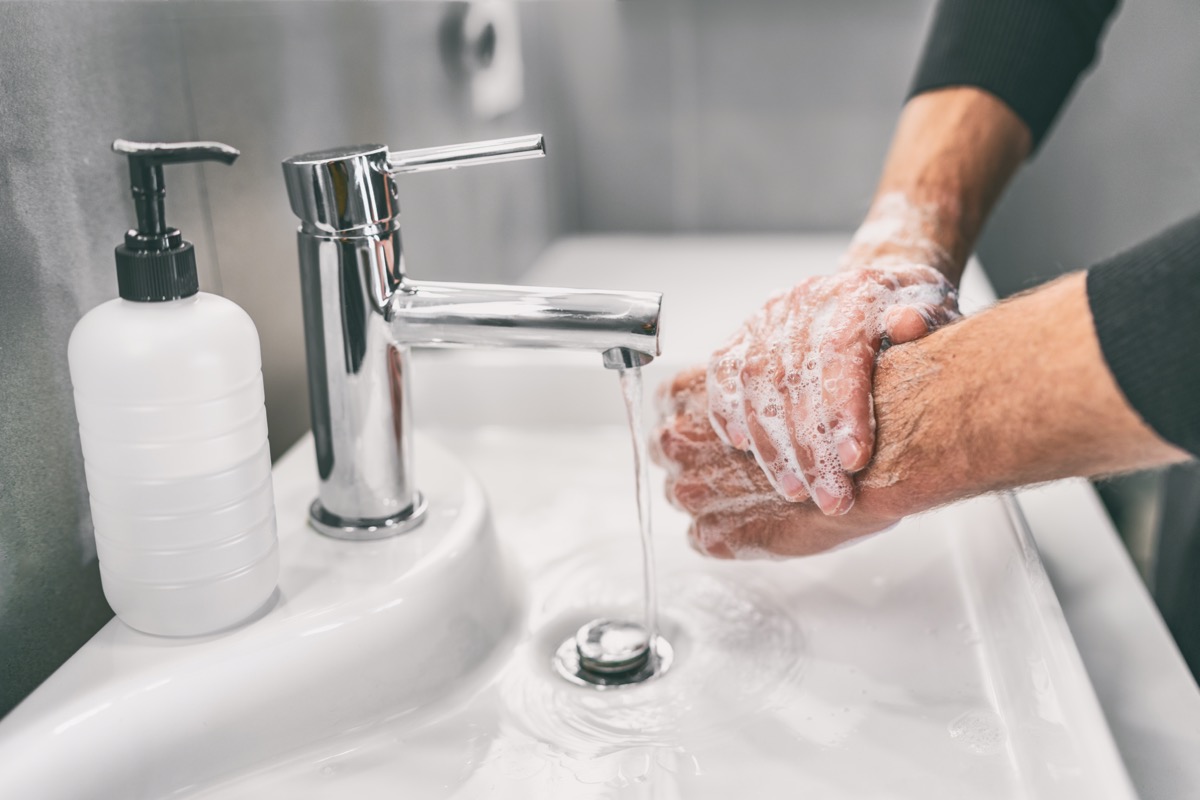
It's critical to thoroughly wash your hands before you go out to dinner. No, it doesn't need to be antibacterial soap, just good old soap will combine with your natural body oils and serve as a protective barrier between your hands and any possible contagion. Want to avoid germs? Keep your hands washed. For more info to keep you safe and healthy, check out these 7 Safe Grocery Shopping Tips.
